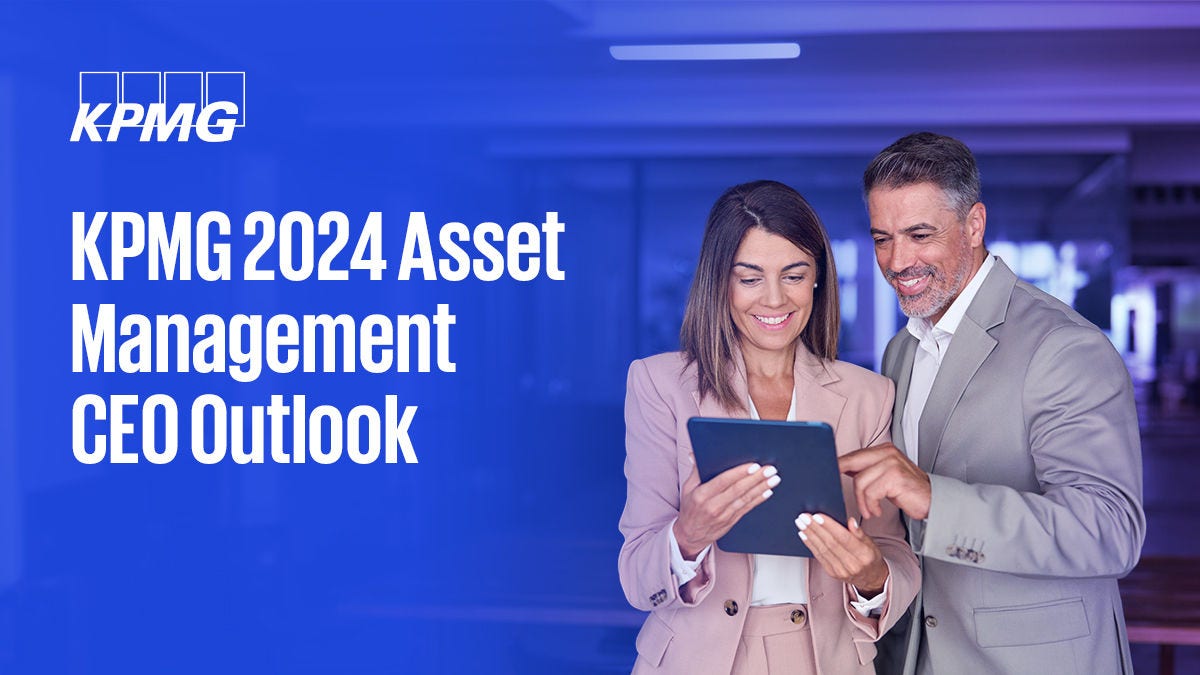The KPMG 2024 Asset Management CEO Outlook report is an in depth report that provides key insights from the 2024 Global Asset Management Outlook survey, offering a deep dive into the current state and future prospects of the asset management sector. With over US$120 trillion in assets under management, the sector plays a pivotal role in shaping the prospects of virtually every other sector. The report reveals that asset management CEOs are confident about the economy and geopolitics, suggesting a positive outlook for growth. Their keen interest in generative AI and digitization indicates a rapid pace of market transformation.
The report also highlights the challenges faced by asset managers, including talent gaps, particularly in relation to AI and climate, and concerns about cyber resilience and stakeholder trust. However, the most successful asset managers are those that take a holistic approach to these opportunities and challenges. It provides a detailed analysis of these issues, along with insights into the role of mergers and acquisitions, the impact of AI on talent and growth, and the importance of sustainability and climate in stakeholder expectations.
Download and read the KPMG 2024 Asset Management CEO Outlook report to gain a deeper understanding of the asset management sector.
What can investment leaders learn from the Asset Management CEO Outlook?
Investment leaders can gain critical insights from the 2024 Asset Management CEO Outlook, which reflects the expertise of C-level executives actively engaged in the Luxembourg market. This comprehensive analysis, stemming from a specific long-term effort and our detailed KPMG Large-scale ManCo & AIFM Survey 2024, provides a granular understanding of the challenges and opportunities that define the local asset management landscape.
Methodology - KPMG 2024 Asset Management CEO Outlook
The KPMG 2024 Asset Management CEO Outlook, part of the 10th edition of the KPMG 2024 CEO Outlook, is compiled from the views of 125 asset management chief executive officers, which was conducted between 25 July and 29 August 2024, providing unique insight into the mindset, strategies, and planning tactics of CEOs. All respondents have annual revenues over US$500M and a third of the total companies surveyed have more than US$10B in annual revenue. The survey included CEOs from 11 key markets (Australia, Canada, China, France, Germany, India, Italy, Japan, Spain, UK and US) and 11 key industry sectors, including asset management. NOTE: some figures may not add up to 100 percent due to rounding. In the asset management research, the two largest sub-sectors were private equity (or special situations, private credit, infrastructure or similar direct investment strategies) with 22 percent of respondents and traditional asset management (primarily equities and fixed income) with 18 percent. The best-represented countries based on organizational headquarters are the US, the UK, followed by Australia, Canada, China, France, India and Japan.
Methodology - KPMG Large-scale ManCo & AIFM Survey 2024
The KPMG Large-scale ManCo & AIFM Survey, now in its 4th edition, was conducted to gather comprehensive insights from key industry participants. The survey included over 40 participants, comprising 22 Management Companies (ManCos) and 19 Alternative Investment Fund Managers (AIFMs). Among these, 18 of the ManCos are from the 20 largest in Luxembourg, and 4 of the AIFMs are from the 5 largest in-house AIFMs in Luxembourg. Collectively, the participants represent more than €3,000 billion in Total Assets under Management (AuM), accounting for over 65% of the Luxembourg market, and employ over 1,800 Full-Time Employees (FTEs).
The data collection process involved conducting interview-based questions with the participants over a specified period. This approach ensured that the survey captured detailed and nuanced responses as well as an opportunity for participants to benchmark themselves against competition, providing a robust foundation for the analysis and findings presented in this report.







